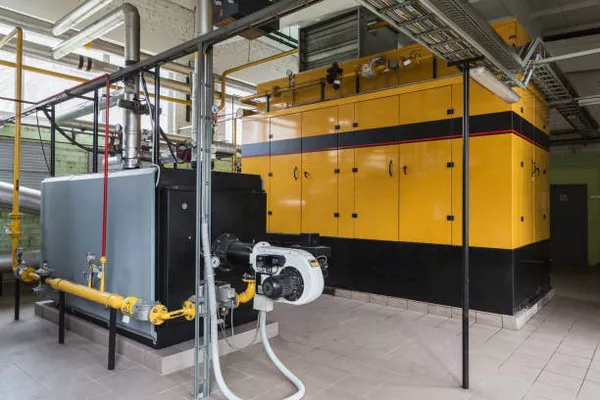Generators serve as vital tools for providing power during emergencies, serving off-grid locations, or simply supplementing household energy needs. Whether for recreational purposes, emergency preparedness, or daily use, understanding the longevity of the fuel used in generators is crucial for efficiency, safety, and convenience. This article explores the factors affecting generator gas longevity, best practices for storage, maintenance tips, and insights into different types of fuels used in generators.
Types of Generators and Their Fuel Sources
Before delving into how long generator gas lasts, it’s essential to understand the different types of generators and their fuel sources. Generators primarily fall into three categories based on the type of fuel they use:
Gasoline Generators: These are the most common types of portable generators. They are generally affordable and easy to find. Gasoline is readily available, but its shelf life is limited.
Propane Generators: These generators use liquefied petroleum gas (LPG). Propane has a longer shelf life than gasoline and is less volatile. Many propane generators can also run on natural gas with minor modifications.
Diesel Generators: Diesel generators are typically more robust and fuel-efficient than gasoline models. Diesel fuel lasts longer and is commonly used for larger generators and industrial applications.
How Long Does Generator Gas Last?
The longevity of generator gas depends on several factors, including the type of fuel, storage conditions, and the generator’s maintenance practices. Here’s a breakdown of how long each type of fuel lasts under optimal conditions:
1. Gasoline
Shelf Life: Gasoline has a shelf life of about three to six months when stored properly. Over time, gasoline can oxidize and form a gummy residue, which can clog the fuel system and affect performance.
Factors Affecting Longevity: The presence of ethanol in most modern gasoline can significantly reduce its shelf life. Ethanol absorbs moisture, leading to phase separation where water sinks to the bottom of the fuel tank. This can cause engine problems if not addressed.
2. Propane
Shelf Life: Propane can last indefinitely when stored in a sealed container. Unlike gasoline, propane does not degrade or form deposits over time. However, propane tanks must be regularly checked for leaks and integrity.
Factors Affecting Longevity: While propane has an excellent shelf life, the safety and storage conditions are paramount. Propane must be stored in a well-ventilated area to avoid buildup of gases in case of leaks.
3. Diesel
Shelf Life: Diesel fuel can last anywhere from six months to a year if properly treated and stored. With the addition of stabilizers, its life can extend to one to three years.
Factors Affecting Longevity: Diesel is less prone to oxidation than gasoline, but it can still develop microbial growth if water contaminates it. Maintaining clean fuel tanks and using biocides can help prolong the life of diesel fuel.
Factors Influencing Fuel Longevity
Understanding the factors influencing fuel longevity can help you maximize the lifespan of your generator fuel:
1. Storage Conditions
Temperature: Fuel should be stored in a cool, dry place away from direct sunlight. High temperatures can accelerate fuel degradation, while freezing conditions can cause fuel to thicken.
Container Quality: Use approved containers for fuel storage. Poor-quality or non-approved containers may allow fuel to evaporate or become contaminated.
2. Additives
Fuel Stabilizers: Adding a fuel stabilizer can significantly enhance the shelf life of gasoline. These additives prevent oxidation and phase separation, allowing gasoline to remain usable for longer periods.
Biocides for Diesel: For diesel fuel, biocides can prevent microbial growth, especially if the fuel is stored for an extended period.
3. Regular Maintenance
Fuel System Checks: Regularly check and clean the fuel system to prevent buildup of deposits and ensure that fuel is flowing correctly.
Fuel Replacement: If fuel has been stored for an extended period, consider replacing it before using the generator. This practice minimizes the risk of engine issues caused by degraded fuel.
Best Practices for Storing Generator Gas
Proper storage of generator gas is essential to ensure fuel longevity and generator performance. Here are some best practices to consider:
1. Use Approved Containers
Always use containers designed specifically for fuel storage. These containers are built to minimize evaporation and prevent contamination. Ensure the containers are clearly labeled to avoid mix-ups.
2. Avoid Ethanol-blended Gasoline
If possible, use non-ethanol gasoline for your generator. Many gas stations offer ethanol-free options. Non-ethanol gas has a longer shelf life and is less prone to phase separation.
3. Store in a Cool, Dark Place
Keep your fuel in a well-ventilated area, away from heat sources and direct sunlight. Extreme temperatures can accelerate degradation, reducing fuel effectiveness.
4. Regularly Rotate Fuel Stocks
To maintain fresh fuel, practice the “first in, first out” (FIFO) method. Use older fuel first and replace it with fresh fuel regularly. This method minimizes the chances of storing fuel beyond its shelf life.
5. Check for Contamination
Regularly inspect your fuel storage containers for signs of contamination or deterioration. Look for water, rust, or any unusual color or odor in the fuel. If contamination is suspected, dispose of the fuel properly.
Conclusion
Understanding how long generator gas lasts is essential for anyone relying on a generator for power. Gasoline typically lasts three to six months, while propane can last indefinitely in sealed containers. Diesel offers a longer shelf life, especially with proper treatment. Factors such as storage conditions, fuel type, and maintenance practices can significantly influence fuel longevity.
By following best practices for fuel storage and maintenance, you can ensure that your generator remains reliable and effective whenever you need it. Keeping a close eye on your fuel supply and replacing it as necessary will not only enhance the performance of your generator but also give you peace of mind during power outages or emergencies. Proper preparation ensures that your generator will be ready to perform when you need it most.
You Might Be Interested In

